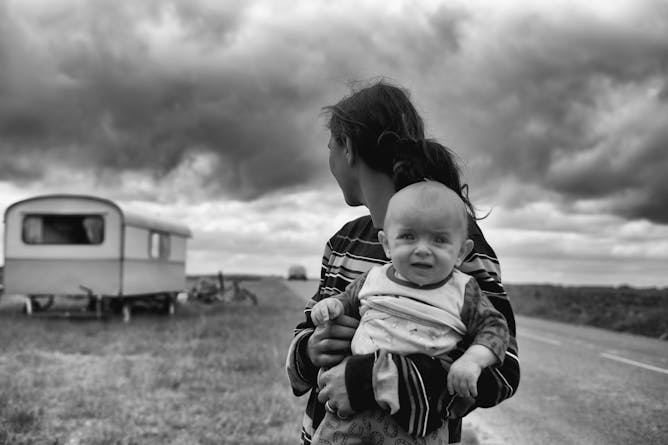|
The documentary Leaving Neverland, a disturbing examination of allegations against the late pop star Michael Jackson, has led to a wider discussion about child abuse in society. But why? Certainly, everyone knew child abuse was a serious societal problem before the documentary was aired. Today in The Conversation Canada, Kevin Quigley of Dalhousie University explains the phenomenon of what’s known as “identifiable victim effect” – why we are more likely to provide aid when one person is suffering, but our willingness decreases when the victims are anonymous or presented as a statistic.
Louise Grogan of University of Guelph reports on a troubling issue: there’s evidence to suggest that, for economic reasons, some families in post-communist countries are using sex-selective abortions so that more male babies are born. Why? Male migrants generally earn higher wages and many families in the post-communist countries rely on their sons to send money back home.
And finally…the Ford government in Ontario continues to face a tremendous backlash over its recent changes to autism funding for families. Kimberly Maich of Memorial University – an autism researcher and also the mother of an autistic child – says the approach that Ontario is taking is not only wrong, but may end up being more expensive in the long run.
Regards,
|

Michael Jackson arrives at the Santa Barbara County Courthouse in 2005 for his child molestation trial in Santa Maria, Calif. Finding Neverland, a documentary film about two boys who accused Jackson of sexual abuse aired on HBO this month.
(Aaron Lambert/CP/Santa Maria Times)
Kevin Quigley, Dalhousie University
The documentary, 'Leaving Neverland,' demonstrates the identifiable victim effect: people are more willing to empathize with individual victims than with large statistics.
|

Because male migrants earn more money to send back home than females, families in some post-communist countries are strongly tempted to use sex-selective abortion to improve their lives.
Johann Walter Bantz/Unsplash
Louise Grogan, University of Guelph
Breeding young men for export has never been a successful economic development strategy. Policies that improve local labour market opportunities could increase the status of women.
|

Early intervention could make a difference. Here, protestors gather at Queen’s Park Toronto March 7, 2019 to protest changes to Ontario’s autism program.
THE CANADIAN PRESS/Frank Gunn
Kimberly Maich, Memorial University of Newfoundland
An inclusive education researcher says the government's consolation plan to boost school funding for autism services with no investment in early childhood education flies in the face of evidence.
|

Le PDG canadien Gerald Cotten est décédé en décembre, emportant dans sa tombe les mots de passe pour déverrouiller les millions de dollars de ses clients.
Dmitry Moraine/Unsplash
Lisa Kramer, University of Toronto
Le PDG est mort en emportant le mot de passe... Ce scénario rocambolesque démontre qu’il faut une nouvelle règlementation qui correspond mieux à un marché financier qui comprend les cryptomonnaies.
|
Culture + Society
|
-
Stuart M Bender, Curtin University
Until social platforms improve filtering of extremist content, we all have a role to play in ensuring our online activities don't contribute to a spectacle society that rewards terrorists with clicks.
|
|
Health + Medicine
|
-
Lowri Dowthwaite, University of Central Lancashire
Depression can affect people at any stage in life – here, an expert in psychology answers a young reader's question about how to help.
|
|
Science + Technology
|
-
Tawana Kupe, University of Pretoria
Science is not the absolute truth. Scientific findings are the beginning, not the end, of the quest for truth.
|
|